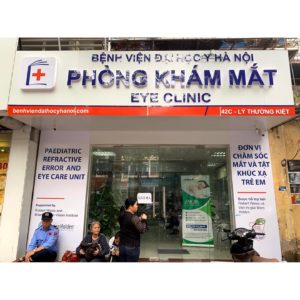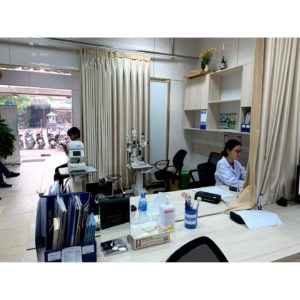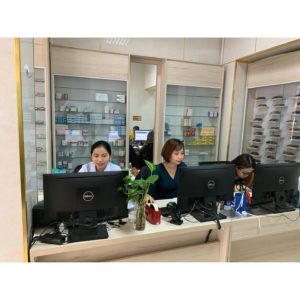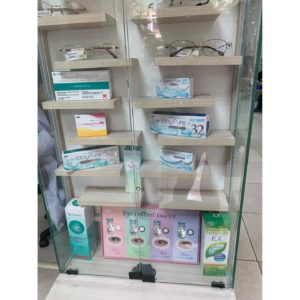SNAPSHOT INTERVIEW: VOSH CORPS FACULTY DR. VINH VU, HANOI MEDICAL SCHOOL
SNAPSHOT INTERVIEW: VOSH CORPS FACULTY DR. VINH VU, HANOI MEDICAL SCHOOL
Through VOSH Corps’ initiative on sustainability, VOSH (Volunteer Optometric Services to Humanity) and BHVIF (Brien Holden Vision Institute Foundation) are working together to establish optometry’s presence and expand its scope of practice in Vietnam. The goal is to create a more sustainable and self-sufficient eyecare system in the developing country as opposed to outreach volunteer programs that can be limited in their long- term effectiveness. Two optometry schools have been established in Vietnam: one at Hanoi Medical School in Hanoi, and the other at University of Medicine Pham Ngoc Thach in Ho Chi Minh City/Saigon. This year the HMU/Hanoi program graduated their very first class of 50 new Vietnamese optometrists and Ho Chi Minh/Saigon graduated their second class of 12 students. These students are in turn helping to teach their fellow students and/or practicing on their own as well as working for ophthalmic equipment companies in distribution. As the number of students in each class size increases so does the promise of a more sustainable an eye care system in Vietnam to cater to the demand for more providers to serve its population.
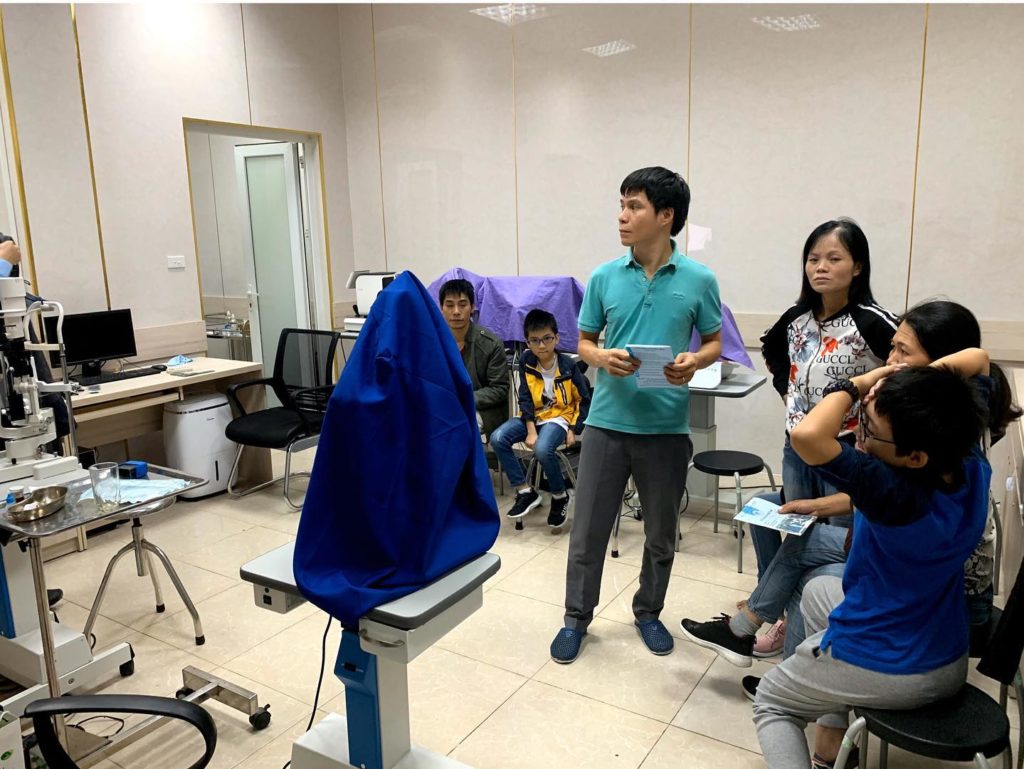
“Give a man a fish, and you feed him for a day.
Teach a man to fish, and you feed him for a lifetime”
I met with VOSH Corps faculty Dr. Vinh Vu at one of the satellite clinics in Hanoi to discuss the work currently being done at the Hanoi Medical School and what goals are in place for the future.
Valerie: Thank you so much for taking the time to meet with me, even when it is your day off!
Vinh: No problem, thank you for coming out all of this way to visit us, we really appreciate it.
Valerie: How do you feel about the work that you are doing?
Vinh: I feel great! It is really rewarding. Sometimes when you’re trying to build sustainability there is not instant gratification, but the hope is to create the infrastructure in order for Vietnam to take care of its citizens.
Valerie: Let’s talk a little bit more about that. What does sustainability mean to you and what is the ultimate goal in sustainable eyecare?
Vinh: Going to a volunteer outreach program is great, but what happens after we all leave? There is still a need for eyecare and our goal of sustainable eyecare is employing American optometrists to teach the level of optometry which we ultimately hope to develop the Vietnamese skill set to match. So that when we leave, they will be self-sufficient.
Valerie: What was Vietnam like before the two Optometry schools opened?
Vinh: Optometry did not exist. There were only ophthalmologists that did not fulfill the need of the country. Shops would pop up then to prescribe auto-refraction and contact lenses which are not accurate and unsafe. It is a four-year program and really striving to prepare students for comprehensive eyecare.
Valerie: What have been your biggest challenges?
Vinh: We’re really trying to make this our model clinic and pushing the boundaries of what local care can look like, stressing preventative care versus problem-based care. It is a little bit of a catch-22 because we want to be able to teach them what they can do, but in order to do that we need to establish what laws are allowed and that has not formed yet.
Valerie: What is the curriculum like here?
Vinh: It is a four-year program; students need to take a test in order to show competency. They have mainly didactic courses their first two years, begin to see patients in their third year, and will ultimately have dilation privileges. We are trying to model them after the US optometry schools.
Valerie: What is your current role here?
Vinh: I wear a lot of different hats. I teach mainly on the clinical side, but also in courses. My ultimate goal is to enhance the students’ education and elevate the standard of care in Vietnam.
There currently isn’t a Vietnamese optometry law or “job description” and we hope to create high-functioning optometrists to influence the formation of these laws in a favorable way to optometry. The public health will be enhanced with higher functioning optometrists.
